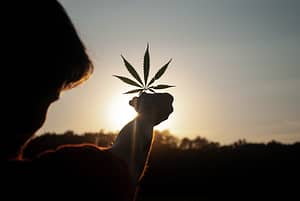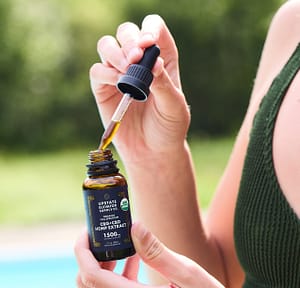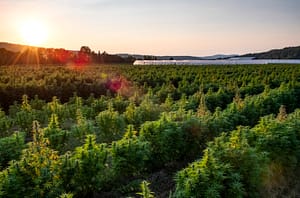Give $20, Get $20 — Refer a friend and get $20 off your next order! Learn More >
Why Organic Matters: Clean Plants, Clean Products
Demand for organic products is higher than ever, and there are a number of reasons why consumers might be drawn to them. There are clear environmental benefits to reducing harmful chemicals in the soil & waterways, promoting biodiversity and increasing carbon capture. Clearly, for meat and dairy consumers, knowing that livestock on organic farms are generally treated more humanely is important. And, health-conscious consumers can point to evidence that organic products have greater nutrient density and lower levels of toxic metals and pesticide residue than conventional agricultural products.
When we think about how organic hemp fits into these considerations, the certification becomes not only preferable, but absolutely critical. At Upstate Elevator, we are the only CBD company to have achieved USDA Organic Certification for our line of organic hemp capsules, meaning that every input—from coconut-derived MCT oil, to the vegan capsules—meet the rigorous criteria guaranteeing safe, healthy supplements.
Hemp has many gifts to offer, from the CBD-rich oils that we take daily, to its unparalleled application for sustainable fiber and construction materials. Perhaps less well known is that it has a remarkable ability to clean the soil and water where it grows and excels at restoring healthy ecosystems.
It is also a bioaccumulator, which means that it cleans the soil by absorbing toxins faster than can be released — including fertilizers, pesticides, heavy metals, glyphosates, GMOs, toxic solvents — and stores them throughout its tissue. While many shrubs are regenerative crops, hemp is exceptional because its long roots reach deep into the ground, removing widespread contamination more effectively than shallow-rooted shrubs.
Plants grown for the purpose of land remediation should never be harvested for food, clothing, or medicinal products due to the presence of these toxic compounds. However there are other options for its use, for example in biofuels.
Rather than using techniques of larger-scale industrial agriculture—like genetic modifications, monoculture farming, and synthetic fertilizers and pesticide—organic farmers proactively conserve biodiversity and natural resources on their farmland.
Hemp is Certified Organic if it can be proven to have grown in soil that had no prohibited substances applied for three years prior to harvest. Many producers claim “organically grown” or “produced using organic methods”, but just 6 months earlier that field could have grown another crop with harsh pesticides or synthetic chemicals applied. The hemp will suck up those toxins to help clean the soil and they will end up in your oil.
Achieving the “USDA Certified Organic” seal means that a government-approved certifier has inspected the growing and processing conditions to ensure they meet official standards. The regulations also require annual compliance inspections, have a strict list of approved materials, require documentation of organic practices, and provide guidelines for protecting the soil ecology and water quality.
For those of us concerned about this level of traceability in what we put in our bodies, certified organic provides that important assurance.
While California leads the nation in overall organic food production, several other states best California on a relative basis including Maine, New York, and Vermont. In fact, our little state is the runaway leader, where organic acreage accounts for nearly 17% of our total farmland.
At Upstate Elevator, we are clean cannabinoid crafters, and the Upstate Elevator USDA-Certified Organic Product line ensures that you are purchasing CBD products free of synthetic chemicals and that it was cultivated, harvested and processed without exposure to any toxic agents or additives. Guaranteed.




